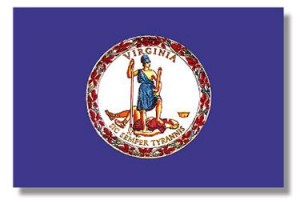
Yesterday, the Joint Legislative Audit and Review Commission issued a less-than-flattering report on the Virginia Economic Development Partnership Authority (“VEDP”). As a result, today’s post takes a look at how the Commonwealth can combat VEDP fraud using the Virginia Fraud Against Taxpayers Act.
I was wondering, recently, about the lack of qui tam actions under the Virginia Fraud Against Taxpayers Act concerning these economic development projects, and perhaps this JLARC report shows us part of the reason.
I have blogged before about common-sense steps that state and local governments can take to fight fraud and protect their hard-earned tax dollars and many of those suggestions apply here as well.
Background on the Virginia Economic Development Partnership Authority
Most if not all states have one or more organized entities tasked with promoting in-state business development; these entities also reward businesses for setting up shop in or relocating to that state. The hit Netflix series House of Cards is filmed in and around Baltimore, Maryland, for example, and it is specifically because of the Maryland Film Office and its efforts to lure more television and films to Maryland with a combination of tax breaks and other incentives.
In Virginia we also have several entities, including VEDP. In broad terms, VEDP administers incentive grant programs designed to lure businesses to Virginia, encourage existing businesses to expand operations in Virginia and to boost Virginia’s exports abroad. Since 2006, it has awarded more than $350 million to companies.
Mind you, there is at least some evidence for the idea that all of these entities either do not work or are not worth the money that the several states pay for them, but that is a different argument.
Findings of JLARC — and the utility of the Virginia Fraud Against Taxpayers Act
As regular readers know, the Virginia Fraud Against Taxpayers Act is a very effective tool for rooting out fraud and abuse of our tax dollars. But — and this is a pretty big but — those cases can only be prosecuted where and when there are clear contractual and regulatory provisions in place.
VEDP had no documented policies and procedures for critical aspects of administering grant awards prior to January of 2016 — in other words, about the same time as the JLARC report was kicked off.
The report also includes a finding that many of the projects supported through VEDP incentive programs did not meet their performance requirements, but that finding is a given under these circumstances.
Conclusion
I always repeat this when I blog about fraud and the government of the Commonwealth. I do not — repeat, do not — think that Virginia has more fraud than other states — in fact I strongly suspect that we have less fraud than other states. But we have to be constantly vigilant to root out fraud and corruption wherever we can, or at least see to it that someone, somewhere has the right tools to do so.
Stay tuned for more….